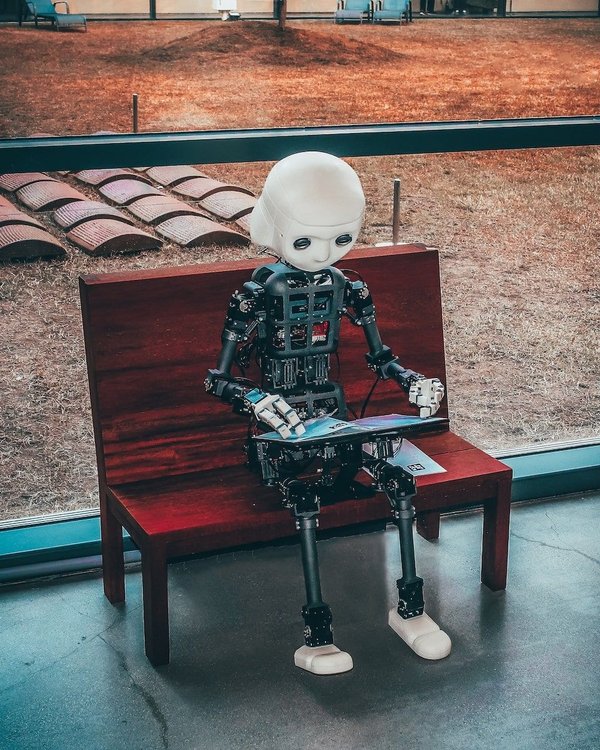business
The future of work: preparing for an ai-driven world
A
admin
November 27, 2023
5 min read
In a time when technological breakthroughs are reshaping our lives, the workforce stands on the brink of a radical transformation. With the rise of artificial intelligence (AI), machine learning, and automation, the nature of work, jobs, and the skills needed to thrive in the business world are evolving. As you look toward the future, understanding these shifts is crucial to prepare for the future work landscape. This article explores the dynamic changes in the labor market, how jobs will evolve, and the competencies you will need to succeed in an AI-driven world.
The Impact of AI and Automation on Jobs
The integration of AI and automation into various industries has sparked significant debate regarding the fate of human workers. Some fear a world where machines displace people from their jobs, while others envision a future where technology and humans work in tandem, leading to unprecedented productivity growth. However, the truth likely lies somewhere in between.
The Changing Landscape of the Labor Market
In sectors like manufacturing, customer service, and even healthcare, repetitive and routine tasks are increasingly being performed by machines. This shift has led to concerns about job security, particularly for roles that don’t require complex decision making or problem-solving skills. Yet, this very automation also has the potential to generate new jobs, especially in fields like business analytics, data management, and AI maintenance.
The Transformation of Existing Jobs
While automation may replace certain tasks, this does not necessarily mean the end of the jobs themselves. Instead, roles are likely to transform, requiring workers to adapt and develop new skills. For example, a bank teller’s job today involves less cash handling and more customer relationship management—a trend that will likely continue as AI handles more of the routine aspects of their work.
The Skills That Will Define Future Work
As traditional job descriptions morph to fit into an AI-driven economy, the skill sets required for these evolving roles are also changing. It’s not just about understanding technology; it’s about complementing it. To remain competitive, you’ll need to focus on developing capabilities that AI cannot easily replicate.
Critical Thinking and Creative Problem-Solving
In a data-rich world, the ability to analyze information, identify patterns, and devise innovative solutions will be invaluable. Critical thinking and problem solving will be at the core of future work, enabling workers to make strategic decisions that AI may not be able to.
Emotional Intelligence and Interpersonal Skills
Machines may excel at processing data, but they lack the nuances of human emotion. Professions that rely heavily on empathy, such as psychology, education, and certain aspects of customer service, will still need the human touch. Emotional intelligence and the ability to build relationships will become increasingly important.
Continuous Learning and Adaptability
In an ever-changing environment, the willingness to learn new things and adapt to new situations will be critical. Lifelong learning will become the norm, with workers expected to continuously update their skills to keep pace with technological advancements.
The Role of Education and Training in an AI-Driven Economy
As the demand for new skills grows, the education system and professional training programs must evolve to meet the needs of an AI-dominated workplace. This evolution will not only influence what is taught but also how it is taught, with an increasing emphasis on practical, hands-on learning.
Adapting Educational Curriculums
Education providers, from primary schools to universities, will need to integrate subjects like coding, data analytics, and AI ethics into their curriculums. This integration will help prepare students for the jobs of the future by giving them a solid foundation in the technologies that will shape their careers.
The Rise of Micro-Credentials and Online Learning
Traditional degrees may no longer be sufficient to keep up with the rapidly changing skill requirements of the workforce. Micro-credentials and online learning platforms offer more flexible and accessible ways for individuals to acquire specific skills quickly and efficiently.
Partnerships Between Industry and Education Providers
Collaborative efforts between businesses and educational institutions can ensure that the skills being taught align with the needs of the job market. Such partnerships can also provide students with valuable practical experience through internships and apprenticeships.
Preparing Businesses for an AI-Driven Future
Companies need to anticipate the changes AI will bring and plan accordingly. This preparation involves everything from investing in the right technology to fostering a culture that embraces change.
Embracing Technological Innovation
Businesses that invest in AI and automation technologies can gain a competitive edge through improved efficiency and decision-making capabilities. However, investing in technology also means investing in people who can work alongside these systems.
Cultivating a Culture of Continuous Improvement
In an AI-driven world, a company’s success will depend on its ability to adapt and innovate continuously. Creating a work environment that encourages experimentation, learning, and collaboration will be key to fostering innovation.
Investing in Employee Development
To fully leverage AI’s potential, businesses must invest in their employees’ development. Providing opportunities for upskilling and reskilling will ensure that the workforce stays relevant and capable of working with new technologies.
Conclusion: Embracing Change to Thrive in the Future
The future of work in an AI-driven world is not a distant reality—it’s unfolding now. While automation and AI will certainly transform the labor market, they also present opportunities for growth and innovation. For you, the workers, this means embracing a mindset of continuous learning and focusing on developing skills that complement technology, such as critical thinking, empathy, and adaptability. For businesses, it means investing in both technology and human capital, fostering environments that encourage innovation, and staying agile in a rapidly changing world. Ultimately, your ability to adapt and grow alongside these advancements will determine your success in the workforce of tomorrow. Prepare for change, embrace new challenges, and be ready to leverage the potential that an AI-driven world has to offer.
business
View all articles business →
